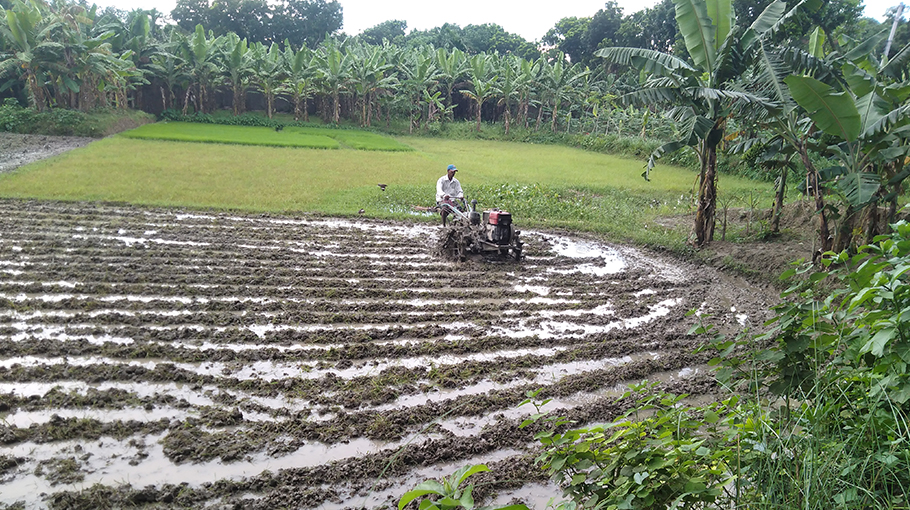Prolonged drought hindering Aus farming in Jhenaidah

The Aus farmers in Jhenaidah have been facing severe crisis of rain water to produce their paddy.
The situation might hinder the smooth production and the farmers have to bear excessive cost of production. The slight rain in Bengali month Asharh and mid Shraban could not satisfy the farmers as they had witnessed only 171 milimetre of the natural rain till July 29.
Some of the farmers at Kalicharanpur village in Jhenaidah Sadar when contacted said the Aus paddy is a rain depended crop that needs huge rain water in its 115 days life. But the farmers could not see adequate rainfall. since inception of the paddy. Most of the seedbeds for Aus were damaged due to severe drought which compelled the farmers to prepare new seedbeds to make up the deficiency.
As the farmers do not have any alternative to provide irrigation on their Aus plots, collecting the same from neighboring farmers where they will have to pay one-fifth (20 percent) of the paddy produced for the irrigation purposes. It will increase their production cost, they said.
According to a source related to deputy director of the department of agriculture (DAE) in Jhenaidah Khamarbari, the farmers of six Jhenaidah upazilas are going to produce 141,281 tones of rice on their 44,150 hectares of land. Incentives like seeds, fertilizers, cash money for caring and other input supply has encouraged the farmers to bring the additional land in the season. Each hectare of land will provide 3.20 tons of rice on an average which was 36,838 hectares in the last season, said the DAE sources.
The DAE sources said, the farmers in Jhenaidah Sadar have been cultivating the Aus on 2,760 hectares, Kaliganj farmers on 2,500 hectares, Kotchandpur farmers on 5,225 hectares, bordering Moheshpur farmers on 16,670 hectares, Shailkupa farmers on 15,625 hectares and Harinakundu farmers on remaining 1,370 hectares of land. Production target on each hectare of land was estimated for 3.20 tons of rice as against previous season’s 3.19 tones. The farmers had produced seedbeds on a total of 2,187 hectares of land in the season to meet their demand, DAE sources said.
DAE deputy director in Jhenaidah Khamarbari Asgar Ali when contacted admitting the severe drought said the farmers were the victim of natural calamities like drought. As there was adequate rainfall in the season, they will have to procure irrigation water from individuals at a higher rate.
Field level officials of the DAE have been standing by the Aus farmers so that they might ensure irrigation
water as it required, DAE deputy director said.




